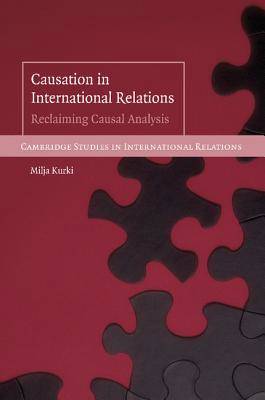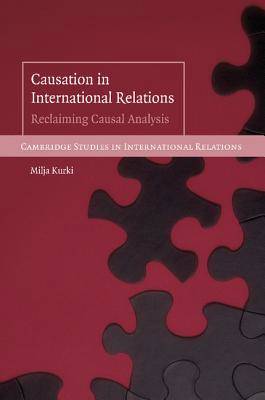
- Afhalen na 1 uur in een winkel met voorraad
- Gratis thuislevering in België vanaf € 30
- Ruim aanbod met 7 miljoen producten
- Afhalen na 1 uur in een winkel met voorraad
- Gratis thuislevering in België vanaf € 30
- Ruim aanbod met 7 miljoen producten
Zoeken
€ 67,95
+ 135 punten
Uitvoering
Omschrijving
World political processes, such as wars and globalisation, are engendered by complex sets of causes and conditions. Although the idea of causation is fundamental to the field of International Relations, what the concept of cause means or entails has remained an unresolved and contested matter. In recent decades ferocious debates have surrounded the idea of causal analysis, some scholars even questioning the legitimacy of applying the notion of cause in the study of International Relations. This book suggests that underlying the debates on causation in the field of International Relations is a set of problematic assumptions (deterministic, mechanistic and empiricist) and that we should reclaim causal analysis from the dominant discourse of causation. Milja Kurki argues that reinterpreting the meaning, aims and methods of social scientific causal analysis opens up multi-causal and methodologically pluralist avenues for future International Relations scholarship.
Specificaties
Betrokkenen
- Auteur(s):
- Uitgeverij:
Inhoud
- Aantal bladzijden:
- 370
- Taal:
- Engels
- Reeks:
- Reeksnummer:
- nr. 108
Eigenschappen
- Productcode (EAN):
- 9780521709507
- Verschijningsdatum:
- 2/06/2008
- Uitvoering:
- Paperback
- Formaat:
- Trade paperback (VS)
- Afmetingen:
- 156 mm x 228 mm
- Gewicht:
- 594 g

Alleen bij Standaard Boekhandel
+ 135 punten op je klantenkaart van Standaard Boekhandel
Beoordelingen
We publiceren alleen reviews die voldoen aan de voorwaarden voor reviews. Bekijk onze voorwaarden voor reviews.











